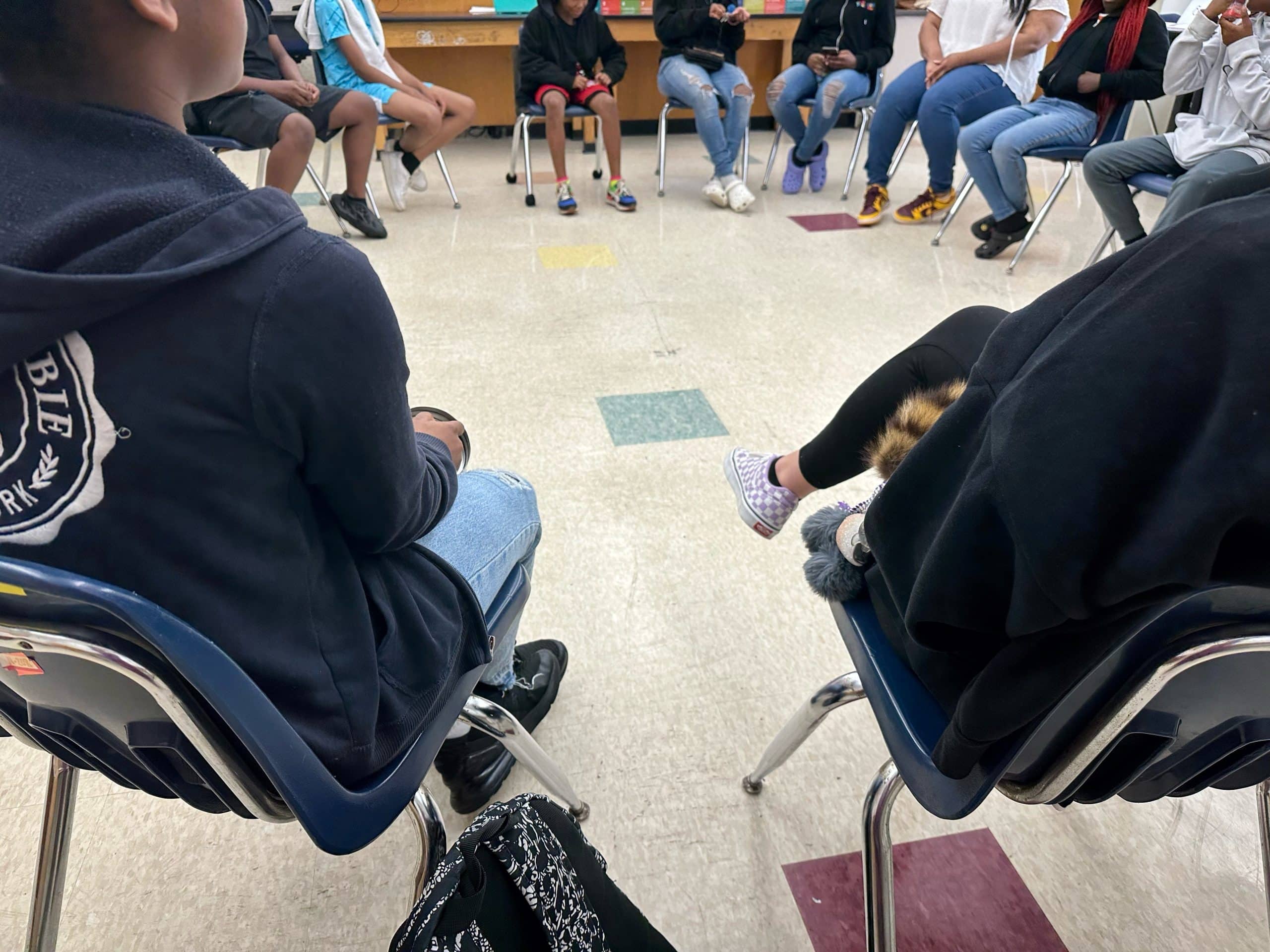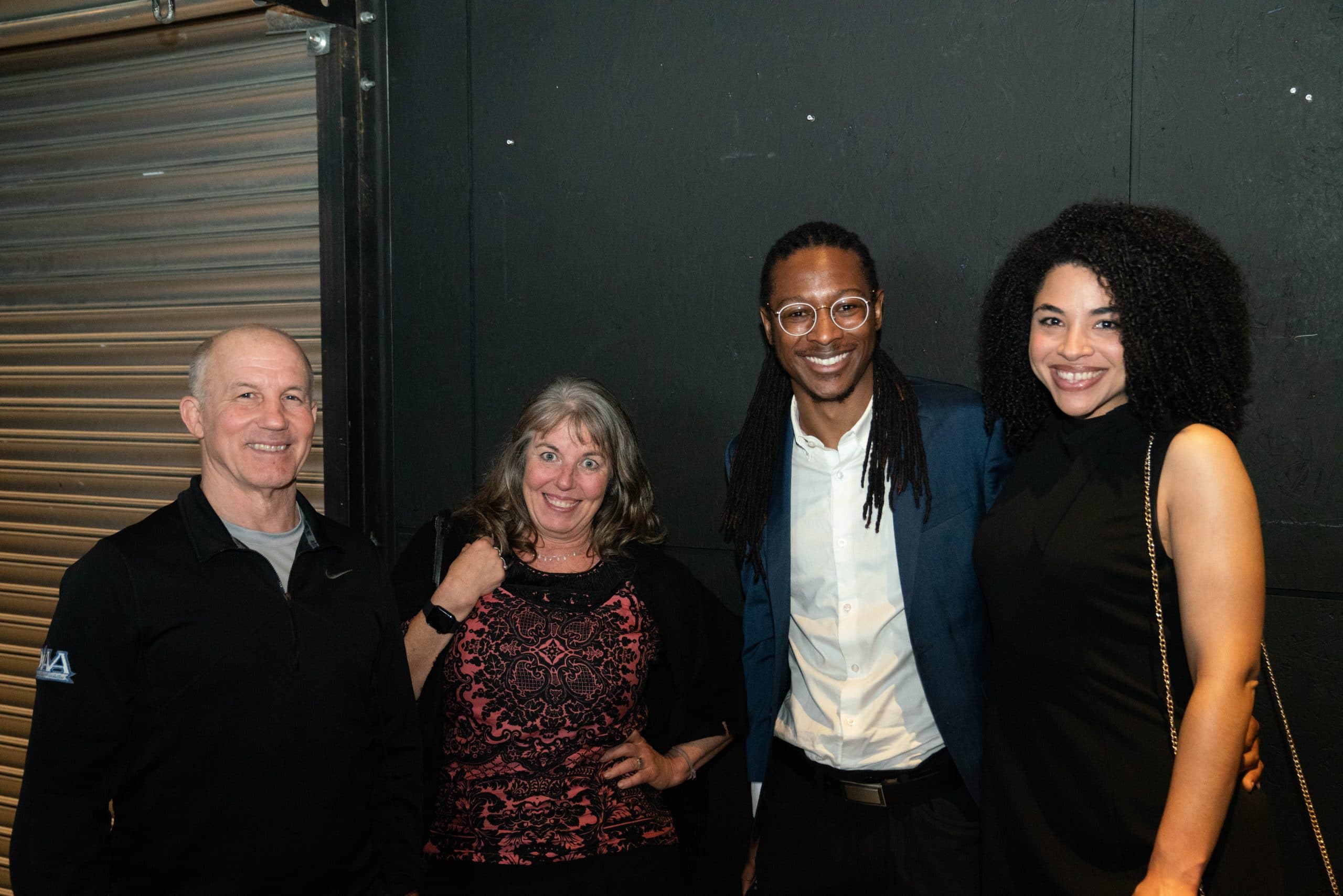
The Next Century of Justice
STARTS HERE
For 105 years, DCJ has fought for justice in Delaware. With your support, we’ll continue to transform lives and build safer, stronger communities for generations to come.
105 years of justice and counting
Our work continues, and we need your support.

DCJ’s story began over a century ago.
On June 10, 1920, hundreds of Delawareans gathered with a bold vision: to build a justice system rooted in fairness and dignity. From that vision came the Prisoners’ Aid Society, now known as the Delaware Center for Justice.
From reentry and youth programs to bold policy reform, Delaware Center for Justice has never stopped showing up for Delaware.
Now we invite you to be part of what comes next.
Justice is not guaranteed. It is built case by case. Your gift creates second chances and real change for people, families, and communities across Delaware.

Lead the Way as An Early Justice Sponsor
We have been fighting for justice in Delaware for more than a century, but our anniversary fundraising campaign is just kicking off. We are inviting 105 donors to lead the way by donating $1,500 or more.
A gift of $1,500 would:
- Fully fund registration fees for all participants in the Shoplifting Alternatives course for one year, allowing first-time offenders to avoid further involvement with the legal system.
- Cover the cost of diverting one case from the criminal legal system.
- Provide books and audio recordings to 100 children of incarcerated parents for six months. Through our Read In, Read Out program, your gift would nurture literacy and family bonds.
Real People.
Real Stories.
Real Change.

In the past year:
700+
individuals served through
Transitional Reentry
$56k
in assistance to
returning citizens
$20k
in direct support
to youth & families

Keeping Families Connected

Keeping Families Connected
While incarcerated at Baylor Women’s Correctional Institution, Nicole stayed connected to her children through the simple but powerful act of reading aloud.
Through the Read In, Read Out (RIRO)* program, incarcerated parents record themselves reading age-appropriate books to their children. Each recording is mailed along with the book, allowing kids to follow along while hearing their parents’ voices.
“Reading to my daughter gave me a sense of purpose,” another participant said. “It reminded me I was still her father, even from the inside.” RIRO strengthens family bonds and allows parents to be active, not absent in their child’s development. One parent shared, “I felt closer to my son than I had in months. It helped me believe I could still be a good parent.”
Strengthening connections lowers recidivism, improves children’s lives, and interrupts the cycles of intergenerational incarceration.
*Read In, Read Out is a collaborative initiative of the Delaware Center for Justice, the Department of Corrections, and Read Aloud Delaware.
Strengthening Communities
Strengthening Communities
Restorative conferences are an alternative to the legal system. They bring together those harmed (victims) and the individuals who harmed them to find a resolution. “The biggest benefit to our programs is that victims get a voice in the process, they don’t get one in the legal system,” Barbie says. “They actually get to say yes or no–this is what I want to see from this individual.”
One young man came to DCJ when he threatened a neighbor with an airsoft pistol, a BB gun that looks almost identical to a real weapon. The neighbor was scared but mostly, he simply wanted to understand the “why.” In mediation, the boy admitted he was thinking about his mother’s diagnosis when a friend started showing off the gun. He grabbed it and took action without any thought or reason.
“It was the first time this young man’s mother realized how much her diagnosis had been impacting him and how much he was still holding back,” Barbie said. “So rather than this young man facing jail time we were able to get him a mentor and a support group for children whose family members are fighting cancer.”

Supporting Second Chances

Supporting Second Chances
DCJ staffer Amber picked James up from prison the day he was released. James, a self-described addict, needed a lift to his sober living facility in Milford, where he would live with five other men, all in recovery. James had never lived in that community before. Amber helped him navigate Kent and Sussex Counties, get to appointments with his parole officer, and became a steady source of support in his life.
For 90 days post-release, participants like James are connected to critical services, including housing, mental health and substance use supports, employment, education, and more. Transitional Reentry has served over 700 individuals, offering the guidance and stability needed to help people successfully reintegrate into their communities.
James says DCJ’s reentry services gave him the chance to reclaim his life. “I have money in the bank. I’m connected with my kids again,” he said. “I’m 61, and I’m just now starting to live.”
See Your Impact in Action
$10.50
Share Stories
Provides two new books for a child in the Read In, Read Out program, keeping families connected through literacy.
$25
Restore Dignity
Purchases a hygiene pack to a newly released individual, providing access to basic necessities.
$50
Shape Young Futures
Provides an interview outfit for a young person, helping them take the first step toward employment and stability.
$105
Empower Mobility
Buys a bike and lock for a person returning home from incarceration, allowing them to get to work.
$510
Ignite Success
Equips two clients with laptops so they can continue their education.
$1,050
Restore Justice
Covers the cost of diverting one case from the criminal legal system into DCJ’s Restorative Services.

Justice Isn’t Guaranteed
Delaware has one of the highest incarceration rates per capita in the U.S., and too often, the systems that are meant to help people fail them. DCJ steps in to fill the gaps. But we can only do this with community support.
Every day, people returning home need housing, jobs, guidance, and advocacy to rebuild their lives. Every day, young people need programs that keep them safe and out of the criminal legal system.
Without investment, these critical services can’t reach those who need them most.
Every year, laws need changing. Delaware’s legal system criminalizes poverty and reinforces structural injustice. The Delaware Center for Justice carries on the tradition of strong, non-partisan policy advocacy that’s been in our DNA for over a century.
In the absence of fairness, we show up.

Keep the Momentum Going
Every gift helps DCJ expand services, strengthen programs, and transform lives across Delaware. From reentry support to youth mentorship and community advocacy, your contribution fuels real change.
You can also get involved beyond giving:
- Visit our Events page to learn about upcoming opportunities.
- Download our Communications Toolkit to help spread the word.
- Follow DCJ on social media and subscribe to our newsletter below for the latest updates.
Follow along to commemorate our 105th year!








